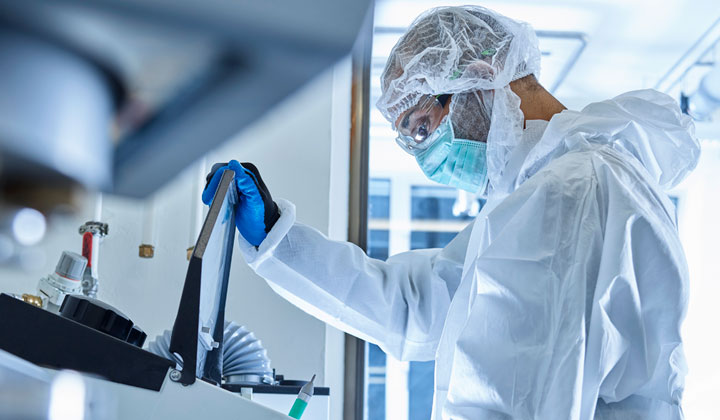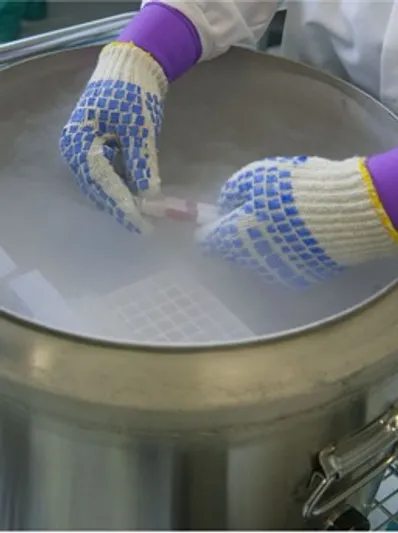
Microsatellite instability (MSI) testing
Labcorp offers Microsatellite Instability (MSI) testing to researchers for determination of the MSI status between a human tumor sample and a control sample from the same individual (human tissues and/or extracted DNA from human tissue) and/or human cell lines.
MSI Testing
Microsatellite instability [7] is a change in the length of a microsatellite allele due to insertion or deletion of repeating units during DNA replication and failure of the DNA mismatch repair system to correct these errors. Alleles present in the tumor sample but not found in the corresponding reference sample indicates presence of microsatellite instability. Microsatellite Instability (MSI) analysis can be used as a screening method to identify human tumor samples in need of further characterization (e.g. for gene mutations involved in specific cancer pathways).
The kit used for human MSI testing (Promega Corporation) includes fluorescently labeled primers for co-amplification of seven markers including five mononucleotide repeat markers (BAT-25, BAT-26, NR-21, NR-24, and MONO-27) and two pentanucleotide repeat markers (Penta C and Penta D). The mononucleotide markers are used to detect MSI and the pentanucleotide markers are used as quality control markers to detect possible sample mix-ups and/or contamination with another sample.
Call us at 1-800-IDENTITY (USA) or 1-513-985-9777 (INTL) or Contact Us for more information and for pricing. Volume discounts available.
Please note: This test is for in vitro research use only. Not for use in diagnostic procedures.
Sample Preparation Instructions
We accept cell lines (fresh, frozen, dried cell pellets), tissue or genomic DNA from cell lines or tissue of interest (please note, extra fees may be charged for FFPE or other difficult samples)
We can use ONE sample for STR profiling (human and/or mouse cell line authentication), qPCR mycoplasma testing, and MSI testing; same minimum volume/cell requirements as for human cell line authentication and/or mouse cell line authentication.




